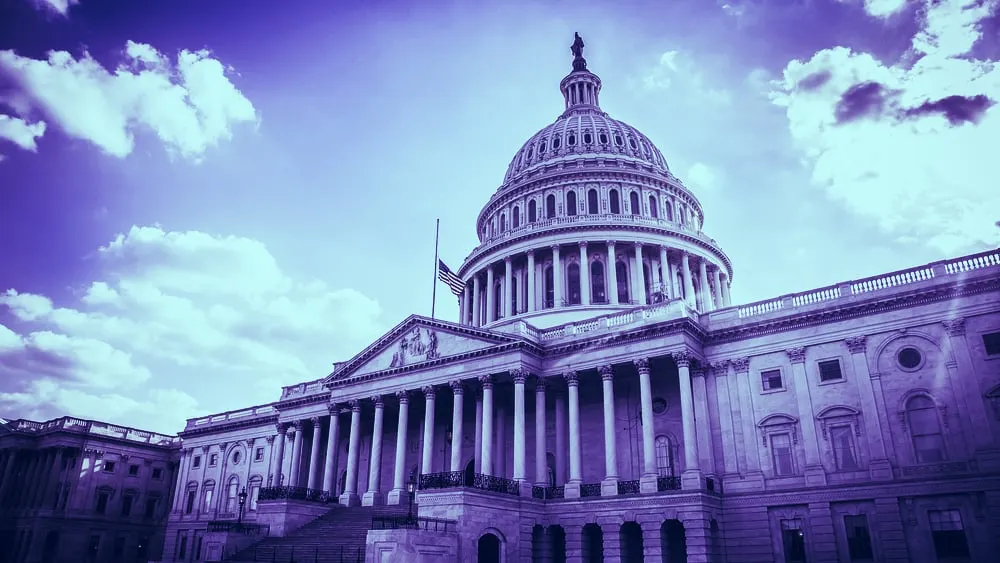The draft’s out of the capitol.
A copy of the still in-progress Digital Commodities Consumer Protection Act (DCCPA), which outlines how the Commodities Futures Trading Commission would regulate the crypto industry, was uploaded to GitHub today.
The draft appears to show a softening of the language that drew criticism because it could have created a de facto ban on DeFi—a catch-all term for blockchain-based financial tools that allow users to trade, borrow, and loan crypto assets without third-party intermediaries.
“Notably, this version contains a limited exception to the term 'digital commodity trading facility' which would exclude persons who solely develop or publish software—this could be a boon to DeFi/crypto,” Gabriel Shapiro, a crypto attorney and general counsel at Delphi Labs, tweeted on Wednesday.
Shapiro said he made the draft available to the public because of his belief in “transparency and open discussion of the future of cryptolaw.”
The DCCPA was introduced by Sens. Debbie Stabenow (D-MI) and John Boozman (R-AR) in August. Since then, Coinbase and FTX CEO Sam Bankman-Fried have been openly supportive of it. It’s also gained some traction because it offers an alternative to what has been described as regulation-by-enforcement strategy from the SEC.
But both Coinbase and FTX, centralized entities, have drawn criticism for supporting a bill that has been interpreted as a threat to the decentralized protocols in the industry, such as those that power decentralized exchanges like Uniswap.
On Tuesday night, Bankman-Fried wrote on Twitter that he still believes the DCCPA will effectively create a regulatory framework for centralized exchanges “without endangering the existence of software, blockchains, validators, DeFi, etc.”
Then, on Wednesday, he shared a link to a 3,700-word blog post outlining his thoughts on how the digital asset industry should be regulated. In it, he writes that DeFi is “ one of the trickier things” to account for in a regulatory framework.
Meanwhile, the crypto lobbyist group Blockchain Association has been vocal in saying that the DCCPA needs some changes, lest it create a de facto “ban on decentralized finance.”
Last month, Jake Chervinsky, head of policy at the Blockchain Association, summed up the testimony he gave during a September 15 hearing, on Twitter. At the time, he said that the language in the bill would treat all of the crypto industry like centralized entities. But that would make it difficult for DeFi protocols, “no more than code,” to comply with regulations.
He then quoted those comments again on Wednesday, adding: “I'm hopeful that it can be amended to treat DeFi fairly, but we'll have to wait and see what the next draft says.”
Daily Debrief Newsletter
Start every day with the top news stories right now, plus original features, a podcast, videos and more.

